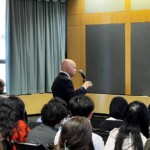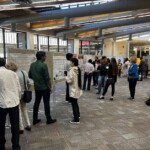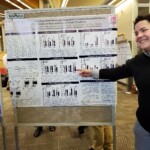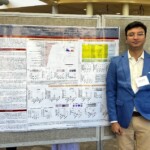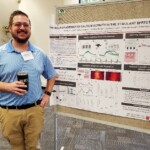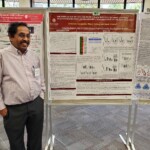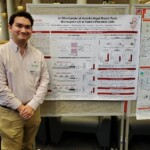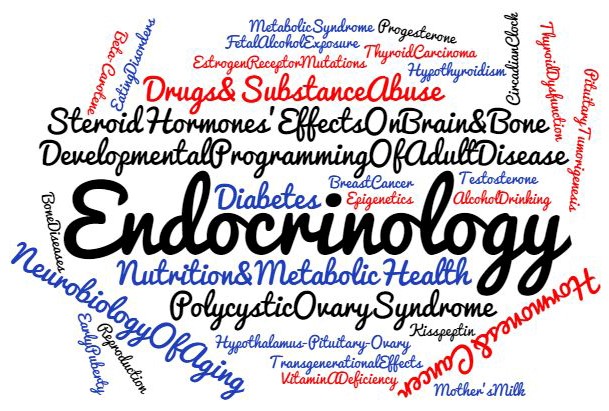 “Early-Life Stress and the Endocrine System” was the theme of the 15th Annual Pioneers in Endocrinology Workshop held at Rutgers on October 3 at the Busch Student Center.
“Early-Life Stress and the Endocrine System” was the theme of the 15th Annual Pioneers in Endocrinology Workshop held at Rutgers on October 3 at the Busch Student Center.
The workshop was sponsored by the Rutgers Endocrine Program; the Department of Animal Sciences at the Rutgers School of Environmental and Biological Sciences, Rutgers – RWJMS Division of Endocrinology, Metabolism and Nutrition; the NExT Center at the New Jersey Institute of Food Health and Nutrition, Research Diets, Inc., and ThermoFisher Scientific.
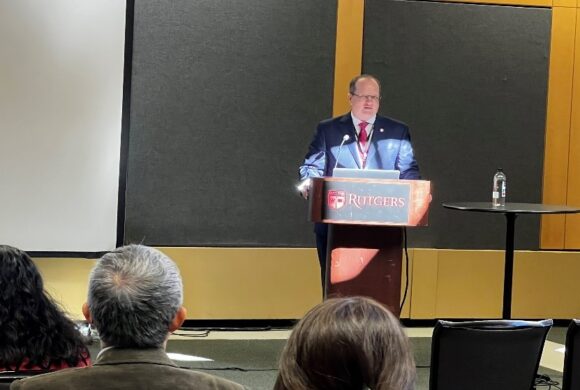
Vice President Michael E. Zwick welcomes attendees to the workshop.
Dipak Sarkar, D.Phil., Ph.D., Director of the Rutgers Endocrine Program and Distinguished Professor in the Department of Animal Sciences, hosted approximately 80 attendees.
Opening remarks were presented by Dr. Sarkar, followed by welcoming remarks from Michael E. Zwick, Ph.D., Senior Vice President for Research, and Wendie Cohick, Ph.D., Dean of Research and Graduate Education, School of Environmental and Biological Sciences.
Nicholas Bello, Ph.D., Professor and Chair, Department of Animal Sciences, introduced the first speaker, Michael J. Meaney, Ph.D., James McGill Professor of Medicine in the Departments of Psychiatry and Neurology & Neurosurgery and Director of the Maternal Adversity, Vulnerability and Neurodevelopment (MAVAN) Project, from McGill University. His lecture was titled “Early-Life Influences on the Neuroendocrine Stress Response: Health, Happiness, and HPA Function.” Dr. Meaney’s research investigates the stable effects of early experience on gene expression and development, focusing on the influence of variations in maternal care. He is credited with launching the fusion of epigenetics and neuroscience.
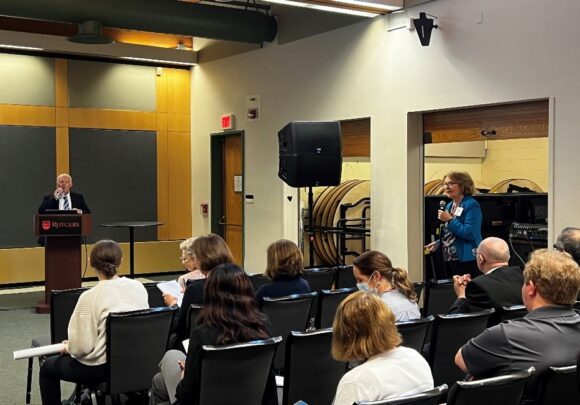 Following the first presentation, Carol Bagnell, Ph.D., Professor, Department of Animal Sciences, led a question and answer session.
Following the first presentation, Carol Bagnell, Ph.D., Professor, Department of Animal Sciences, led a question and answer session.
Louis Amorosa, M.D., Division of Endocrinology, Metabolism and Nutrition, Rutgers Robert Wood Johnson Medical School, introduced the second speaker, Tallie Z. Baram, M.D., Ph.D., Distinguished Professor of Pediatrics, Anatomy and Neurobiology at the Neurology School of Medicine and Director of the Conte Center, from the University of California, Irvine. Dr. Baram’s talk was titled “The Brain’s Unique Endocrine System in Early-Life Stress.” Dr. Baram is a child neurologist and developmental neuroscientist, and her research has focused on programming the developing brain as a result of early-life experiences. Her research has contributed enormously to understanding the effects of early-life experience on normal brain function and the impact of early-life adversity and seizures on neuropsychiatric disorders.
The second questions and answers session was led by Sue Shapses, Ph.D., R.D., Professor of Nutritional Sciences and Director of the NEXT Center at the NJ-IFNH. Dr. Sarkar concluded the morning session with a note of thanks, which was followed by a luncheon.
The afternoon featured a poster session in the International Lounge. Approximately 35 posters were presented, displaying endocrine research conducted at Rutgers and other universities in the following areas: addiction and alcohol research, aging and developmental disorders, cancer, circadian biology, diabetes and metabolic diseases, genetics, immunology, microbiome, neuroscience, nutrition and metabolic health, environmental toxicology, psychiatric disorders, stress control, and steroids and reproduction.
Industry colleagues Research Diets and ThermoFisher presented display booths at the Busch Student Center. All contributions to the workshop were generous and much appreciated.
To learn more about the Rutgers Endocrine Program and next year’s Pioneers in Endocrinology workshop, contact Dr. Dipak Sarkar at dipak.sarkar@rutgers.edu.


